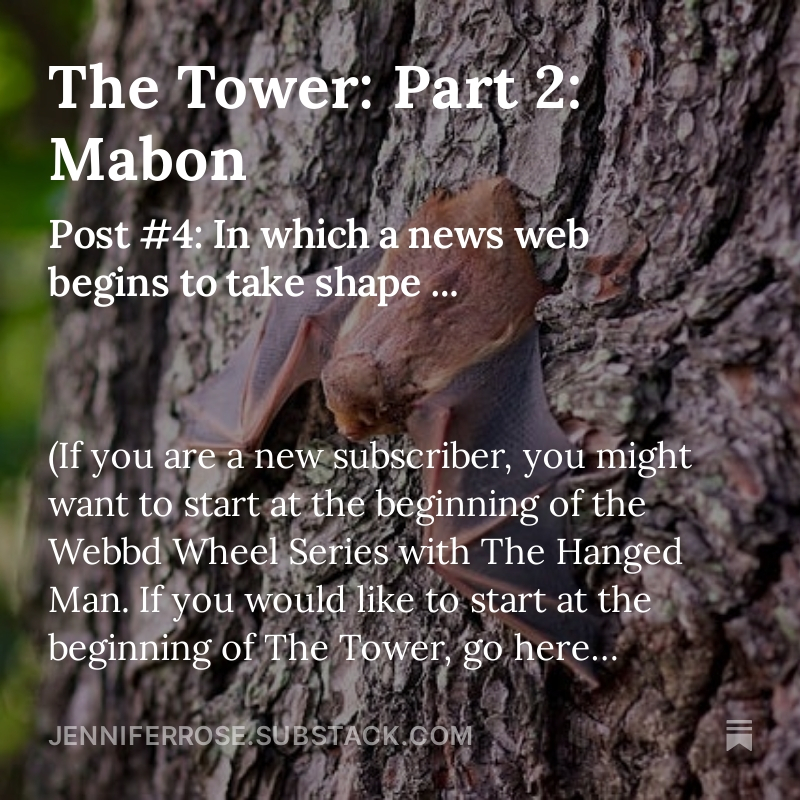Echoes and Ghosts
For me, February 1st is the first day of spring. I know it’s early. I like it that way. I like the anticipation, the half-intuited first stirring of life under the soil, under last year’s debris, the slow, cold wakening of seeds, stiff in their dormant shells but quickening, murmuring, “Is now the time …?”
The birds are the first harbingers for me. Here, in this place, a small city in central Maine, it’s the crows, the jays, the cardinals, and the little tufted titmice. The crows and jays complain in harsh voices of salt-encrusted pavement, tired snow over lumpy ice, the steely cold. Cardinal pairs flit in my bare, bedraggled forsythia, and visit the feeders, a startling splash of color in the grey and bone landscape.
The titmice sing. Joyful, bursting little songs of nests and eggs, of green growth and warming light. The first spears of bulbs, the budding lilac, the luscious magnolia petals are in their song, though those things are only memories and hopes in the February garden.
(As I edit this, the first goldfinch outside the window.)
(On the morning of the day I publish this, at dawn, the chickadee’s two-note spring call.)
I have been feeling quiet. I’m burning down the last two Yule candles, gradually bringing out those of white and ivory, scented with lavender and herbs. Midwinter festivities are packed away, red table linen and warm-colored throws washed and folded for another season. I’ve been spring cleaning, making glass shine, mopping the scarred old floor, washing cupboards and doors. I walk to and from work bundled up in wool and fleece, the cleats on the bottoms of my boots clicking on the bare pavement and keeping me anchored in the ice and snow. The cold makes my eyes water, my nose run, and my ears hurt. At night, after closing the pools at 6:00, I drop a fluorescent sash around my backpack and chest and hold a small flashlight in the hand closest to the traffic, a white LED light shining ahead, a red flashing light showing from behind.
At times sleep has been thin and wrinkled this winter. In other periods of ebbing sleep I’ve felt frantic and exhausted, but this time I don’t mind. The long cold nights are restful whether I sleep or not, lying comfortable and warm in my chilly room, cocooned in linen sheets and a down comforter. I think of stars overhead, the moon on her path, ebbing and flowing, the tides lapping against the stony coast not so very far away. The hot water pipes in the radiators pop and click reassuringly.
I remember ice skating as a child, gliding smoothly over frost and snow, soaring over magically transformed water, cold biting like the crystalline sound of the sharp-edged skate blades, but warm in body from the rhythmic thrust of my legs. I haven’t skated in more than 50 years, but I remember it now, the freedom, the rhythm, the pleasure, the sense of inconsequence, as though nothing mattered, all was easy and graceful and flowing.
As the old year and winter inch over thresholds into something new, I am companioned by memories. This time last year is a constant whisper in my mind, because this time last year my mother was dying. I am not preoccupied with any time before that. After a lifetime of striving to understand and repair family history and relationships, I have surrendered to what was and what is now over. My battered empathy lies tranquil, not ravaged and torn but manageable, docile, turning over the pieces of last year with gentle intention.
In the clarity of cold winter, in my internal peace, I am alive, aware, receptive in new ways. I learned much in the last year, but intellectually. There was not time for more. The intensity of the situation, the constant crises, the long distance management, the anguish, the helplessness, the impossible tasks, the planning, demanded everything I had. I did not have time to process, to think long and deeply. I did not have the strength for it.
But now, now the past year echoes within my bones and flesh and memory. The ghosts of my feelings and experiences are miraculously without anguish, without horror, whispering a half-remembered story from childhood in which everything works out in the end. 
Mom herself does not haunt me. She wouldn’t come back to me in any case, but even before that thought has formed I realize she wouldn’t come back to any person. If she is in a place we can call somewhere, she’s with her animals. No one who knew her well or loved her could doubt it. She wouldn’t come back to anyone, not just me. I knew it before, but now I feel it, and the feeling is gliding, no friction, just freedom and clean, cold air. I can picture her face, laughing, joyful, with manes and tails, paws and shining coats, flopping tongues and pricked ears all around her. And I’m happy for her happiness.
A year ago I was home again after my first trip back to Colorado. I wrote on the ice, on the surface of things. I think without that I might not have stayed the course. It was my lifeline. I was surviving.
A year ago I noticed but did not feel the presence of the birds. The first weeks of Spring came and went; I was focused on the next trip to Colorado, on arranging an estate auction, on supporting my brother in finding renters for Mom’s home, on maintaining communication with Mom’s community, her caregivers, and family. I had no attention for anything but calls and texts as her condition and behavior worsened.
I was not here in April when the magnolia tree began to bloom. I did not kneel in the cold mud of the garden, rejoicing in the chilly sun as the bulbs first thrust up through the softening soil. We were dismantling Mom’s life in Colorado, reading the intimate stories of her history, her loneliness, her fear, and her private struggles. Revealing and releasing stories she never meant anyone to know, casting her life’s possessions and debris into the world, one way or another.
My brother was heroic. The community was stalwart. One step at a time, one item at a time, one mile and minute at a time, we got through it. Somehow.
Home again in May, and back to my life, but only in the motions. Some intuition kept my focus narrow, looking only at the next task, the next step. I gave myself time in the garden, time in the sun. I moved my body. I ate, and worked, and showered, and wrote, releasing my razor-sharp feelings and experience gingerly in words, like so many chips of ice. Now and then I found a moment of peace, a small oasis in between calls and texts, in between Mom’s querulous voice and caregiver check-ins, in between broken nights. But I did not try to plumb the depths of myself. I knew it was not time and I hadn’t the strength to stay safe.
Summer bloomed fiercely and slowly withered as Mom did, until she was released in August.
She was released, but the work of wrapping up a life went on and on, the majority falling on my brother’s shoulders. He soldiered on. We signed and notarized papers, transferred ownership, sold the house, thought about taxes. I dealt with family jewelry and wrote an obituary, and chose a picture for the local paper.
Autumn came. On Halloween, I thought a year ago today she fell and broke her hip and it all began to end …
Winter came, and passed.
Spring is on the threshold. It feels like my first spring in this new house of ours. And now the ice begins to melt. Now I am not skating on the surface of things because the surface softens and melts, warms into depth and movement, into living water, cleansing and healing. The broken edges, the shards, blunted in the sun before melting away.
Water has ever been my strength and my safety. I take off my skates and float in my depths, my memories weightless, my ghosts drifting quietly, the echoes of the past fading away into peace as I allow them to brush against me, perhaps not for the last time – who knows? I will not be afraid if they visit me again. They are familiar now, and will melt again, as winter melts into spring.
“Ice holds memories … great islands of ice … hold many stories, but they’re just the fragments. Most of the stories are gone.”
—James Roberts at Into the Deep Woods
Questions:
- What signals spring to you?
- What intense experiences have you had to unpack slowly, over a long period of time?
- How do you manage your intense feelings?
Leave a comment below!
To read my fiction, serially published free every week, go here: 




